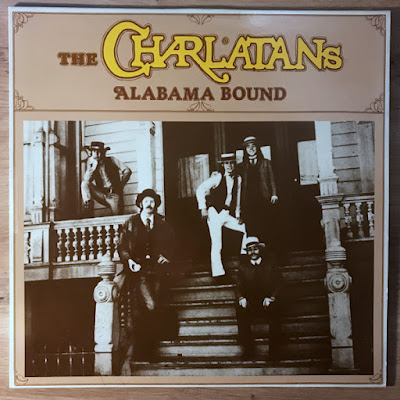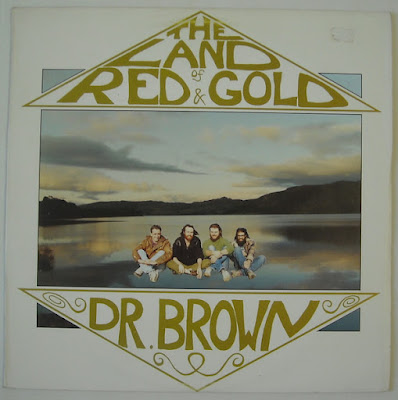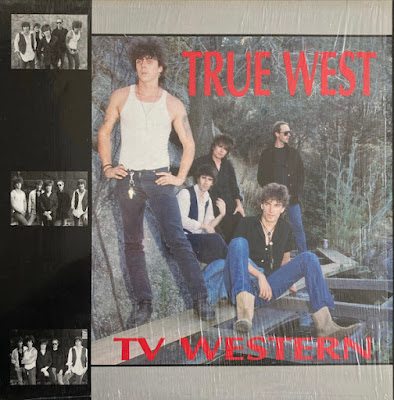The Klubs - Midnight Love Cycle (1967-'69 uk, fantastic psychedelic/power/pop rock, 2001 compilation) Flac
- Formed at Birkenhead Institute for Boys in 1965, the Klubs initially boasted a fairly fluid line-up - a group of that name who entered a September 1965 beat contest on the Isle of Man were pulled together with only two days notice. Despite the ad hoc nature of the line-up and attendant lack of preparation, the Klubs somehow emerged as competition winners, music weekly Disc proclaiming that they'd played "some knockout R&B numbers". By the end of the year, the Klubs line-up had solidified as Paddy Breen (vocals), Alan Walker (vocals, harmonica), Trevor Griffiths (lead guitar), John Reid (rhythm guitar), Norris Easterbrook (bass) and Kenny Marshall (drums).
Playing in and around Liverpool on a semi-pro basis, the Klubs' brand of driving R&B was effectively the provincial equivalent of the thriving Home Counties scene - indeed, their early performances were built around covers of Stones and Pretty Things material. The group made frequent trips to London, often playing at Tiles in Oxford Street as well as the prestigious Marquee. One Tiles all-nighter in July 1966 found them headlining over the Fleur de Lys and the Eyes, while Kenny Everett and underground scenester Jeff Dexter both MC'd at subsequent appearances.
Nevertheless, at this stage the Klubs were primarily a local phenomenon. With the Merseybeat boom in terminal decline, they were one of the new breed of regulars at the Cavern Club - in fact, only the Beatles and the Hideaways could match their number of appearances at Liverpool's premier 60s venue. In view of this link, it seemed a logical move when the Klubs signed a management deal with Cavern Enterprises. However, this development coincided with the departure of Alan Walker. The group were gradually making the transition to original material, and their move away from a blues-based sound meant that Walker's harmonica skills were now something of an anachronism.
Having slimmed down to a five-piece, the Klubs firmly embraced the sea-change in British pop, and a February 1967 ad in the Walton Times described them as 'psychedelic sight and sound'. Employing a rudimentary liquid light show, the group travelled to gigs in a black Maria they'd bought from the Liverpool police, hand-painted with 'Love Not War' slogans, flowers and what the local press described as "a zig-zagging array of pastel and primary shades". However, the group were dragged back from their flower power reveries when drummer Kenny Marshall, one of the founder members of the group, drowned in a local boating accident. He was replaced by Peter Sinclair-Tidy, who'd previously been with another local group, the Crazy Chains.
In March the group cut a one-sided white label demo single for Chart Records, a Liverpool-based label that would collapse without issuing any product. 'Livin' Today' was an early excursion into hard-edged psychedelia, its thrillingly primitive qualities offset by a naggingly insistent melody and the unexpected presence of the Liverpool Philharmonic Orchestra's horn section. With the single stillborn, the Klubs were compensated by their appearance on a Granada TV talent show entitled First Timers, in which they performed an original song entitled 'Only John Tring'. Unfortunately Granada appear to have wiped the show, although an acoustic version of the song, recorded in Paddy Breen's bedroom, is featured herein.
In mid-1967 the Klubs were invited to EMI's Abbey Road for a recording test, which was to be overseen by staff producer David Paramor. Unfortunately Paramor took an instant dislike to them ("Everybody in authority hated us on sight", recalls Norris Easterbrook), and after a marathon twelve hour night-time session on 14/15 July (held in the Beatles favoured console, Studio Two), a frustrated Paramor dismissed the band as "unrecordable". Unfortunately none of the three songs attempted by the Klubs - Cream's 'NSU', the John's Children cult classic 'Desdemona' and a new version of 'Livin' Today' - survived Abbey Road's early 1970s purge of miscellaneous mastertapes. Needless to say, EMI did not sign the band.
Paramor may have been driven to distraction by the Klubs, but their raw talent was undeniable. Enter Vic Smith - subsequently better known as Jam producer Vic Coppersmith-Heaven, but at that stage a freelance soundman briefly employed by the notorious Don Arden. Smith, who'd just signed the equally ill-fated Skip Bifferty, auditioned the Klubs at the Pink Flamingo. Impressed by the group's original material, he signed them to a five year management contract with Arden's company Aquarius, who in turn negotiated a recording deal with RCA Victor.
In early 1968 the Klubs entered Decca Studios in Hampstead for two twelve hour sessions. According to Decca's archives, four recordings were made, including covers of the Lennon/McCartney song 'Drive My Car' (which, like the EMI demos, now seems to be lost forever) and a suitably belligerent version of Hendrix's 'Fire'. Probably of greater significance, however, were two band originals cut at the same time. Surviving tapes reveal 'Midnight Love Cycle' (aka 'Rubber Bike') to be a stunning creation, a glorious collision of 'Run Run Run'-era Who dynamics and Tomorrow-style hallucinogenic bravura (the lyrics, by the way, bear more than a passing similarity to 'My White Bicycle', though the Klubs claim to have been unaware of this particular song). 'Ever Needed Someone' completed the Decca sessions, but this recording, like 'Drive My Car', also seems to be no longer in existence.
Had 'Midnight Love Cycle' appeared at the time, there's no doubt whatsoever that, some thirty years later, the Klubs would enjoy the same cult reputation as groups like Paper Blitz Tissue and Tintern Abbey. However, five Liverpool scallies and Don Arden were always likely to be an explosive mix. Whereas other groups were cowed into submission by the man that critic Johnny Rogan dubbed "the Al Capone of pop", the Klubs had the arrogance to stand their corner, and Arden's request that the group change their name to Revolution was met with a torrent of abuse. Unaccustomed to such recalcitrance, Arden's response was to tell the group that he'd rot in hell before he allowed the Decca sessions to be released.
Retreating to Liverpool to lick their wounds, the Klubs took part in a local festival entitled Kaleidoscope '68. Despite the presence of big name acts like the Move and Pink Floyd, the Liverpool Echo reported that the Klubs "stole the whole show...with painted faces and setting off fireworks that stunned the whole audience", and public reaction to their first appearance forced them to return later in the day for a second spot. As well as supporting other household names like the Small Faces and Hendrix, the Klubs also backed Chuck Berry on three separate occasions when the legendary rocker played the Cavern.
Around this juncture the Klubs fell in with local nightclub owner Jim McCulloch, who was about to start his own record label Cam (spell it backwards and you'll see why). McCulloch cut several tracks with the group in the Summer of 1968. Of greatest interest to psychedelic buffs are 'Indian Dreams' and 'Can't Ebenezer See My Mind', two suitably blurred snapshots of the psychedelic era that invite comparisons with 'S. F. Sorrow'-era Pretty Things. Strangely both tracks, along with 'Oh Baby', an untutored R&B shuffle written a couple of years earlier, were adjudged surplus to requirements. Instead the group's debut single became 'I Found The Sun' b/w 'Ever Needed Someone', issued by Cam in December 1968 but only on sale in local shops despite being advertised nationally in the New Musical Express. Unfortunately both tracks were something of a commercial compromise, with 'Ever Needed Someone', a rerecording of the Decca audition song, particularly disappointing.
Over the last year or two the group's violent stage show had earned them an epithet of "the wild, wild Klubs", but it also served to polarise local opinion. Although they were Cavern regulars, Norris Easterbrook explains that "we came from over the river in Birkenhead, and Liverpool bands hated us". This antipathy wasn't down to the music, it appears, but the group's provocative, non-conformist stage appearance. With Wayne County in short trousers, David Bowie still harbouring dreams of being the next Tommy Steele and members of Kiss learning their chops in studiedly macho garage bands, the Klubs were out on their own in the androgyny stakes - wearing their hair halfway down their backs, painting their faces, and mincing around onstage in dresses borrowed from girlfriends and sisters.
In a social environment where men were men and women were grateful, the Klubs' championing of the trash aesthetic transvestite look meant that they were often pennied off stage by the packs of skinheads gradually infiltrating the local clubs ("At one point we could only play to receptive audiences south of Watford Gap", admits Easterbrook.) However, their outrageous antics occasionally found favour. After one gig Norris Easterbrook, still wearing his girlfriend's dress, was accosted by a couple of brash but enthusiastic New York kids. Easterbrook thought nothing of the encounter until a few years later, when the New York Dolls appeared on British televisions for the first time. Pouting and preening at the camera, resplendent in the full drag queen regalia of long hair, excessive make-up and garish clothing, was guitarist Johnny Thunders - one of the backstage fans at the Klubs gig. Personality crisis indeed...
By now the Klubs were no more. A trimmed-down trio of John Reid (vocals, guitar), Paddy Breen (vocals, bass) and Peter Sinclair-Tidy (drums) had recorded two demo tracks - 'The Stripper' and a cruder revamp of 'Can't Ebenezer See My Mind' - for DJM in late 1969. Following this, the group briefly amended their name to the Klubbs (plus ça change...) before mutating into Wardog, now described by Easterbrook as "a heavy metal dirge band". John Reid left to form Strife, who went on to cut two mid-70s albums for Chrysalis and Gull respectively. In the last few years, however, the Klubs have occasionally reunited. In 1992 they reformed for a Christmas charity concert at the behest of Merseycats, a local organisation who represent the myriad Liverpool groups of the 1960s. Having recruited the Klubs, Merseycats then promptly banned them from future engagements due to "an excessively loud and aggressive act". Banned from charity work?! Somehow that seems an appropriately perverse epitaph for the wild, wild Klubs.













EAC > Flac+.cue+log+scans
ResponderExcluirhttp://www.mediafire.com/file/6s6lcqihn96tqdr/The_Klubs_-_Midnight_Love_Cycle.rar
Muchisimas gracias.
ResponderExcluir